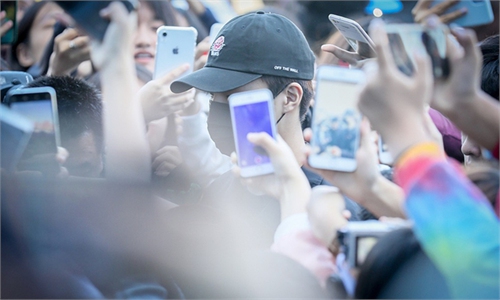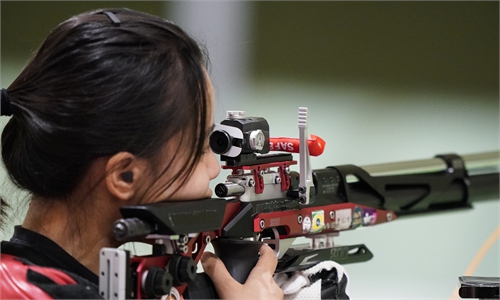ARTS / CULTURE & LEISURE
Culture Beat: Regulations urgently needed to prevent cyberbullying and online rumors

China's Twitter-like Sina Weibo said it is considering promoting a one-click removal function for all cyberbullying messages. Photo: VCG
Cyberbullying is one of the serious negatives brought about by the rise of social media. Although many people have realized the seriousness of this situation and called for systematic supervision of online speech by the government and enterprises, tragedies caused by cyberbullying have not stopped.On Monday, the news that a young girl committed suicide due to cyberbullying and online rumors attracted a whirlwind of attention. The story began several weeks ago when Zheng Linghua, a 28-year-old woman with dyed pink hair, took her letter of admission for graduate school to surprise her 84-year-old grandfather, who was in the hospital at the time. To mark the moment, Zheng took a picture of her and her grandfather and posted it on social media.
However, personal attacks inexplicably appeared, with some spreading rumors about the "improper relationship between her and her grandfather" and others labeling her a "deceitful goblin" because of her unconventional pink hair. On Monday, the news broke that Zheng had committed suicide due to depression.
Cyberbullying is not only a domestic problem. Online abuse is becoming a global concern as the development of the internet continues. However, calls against cyber violence never seem to catch up to the development of internet technology and the rise of social media platforms, which can be seen by the consequences brought about by online abuse.
Zheng's story is heartbreaking and boundaries should be urgently set to prevent cyber violence. So how do we build an anti-online violence network?
The responsibilities of social media platforms, the cradle of online abuse, should be the first thing we address. We can look to similar methods that have been implemented in the past. For instance, measures to prevent online abuse were implemented during the Beijing 2022 Winter Games.
In November 2021, the Personal Information Protection Law was introduced to strengthen the obligations of social media platforms, and strengthen punishment mechanisms concerning personal information infringement.
During the Games, many social media platforms banned over 300 accounts which spread rumors about athletes, in keeping with the regulations introduced by the Chinese government.
Still, some platforms and portals are still unclear about their responsibilities as the frontline fighters against cyber abuse, so systematic regulations must be put into place to help guide these companies.
If we consider cyber violence the scourge of reason and social order, then companies should be our first embankment of prevention. The greater the company, the greater the responsibility it has.
The author is an editor of the Global Times. life@globaltimes.com.cn



